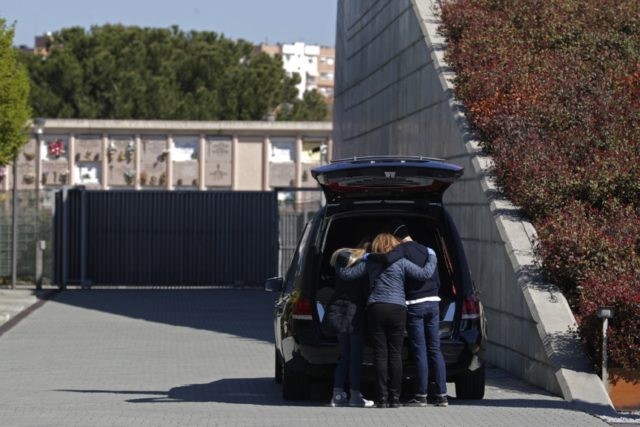Coronavirus infections among doctors, nurses and other health care workers are rising rapidly
As the number of infections has grown to more than 1.1 million worldwide, health care systems are straining under the surge of patients and lack of medical equipment like ventilators, protective masks and gloves. All of which has heightened
In the U.S., governors are describing in stark terms the dog-eat-dog global marketplace they must navigate for the need as they brace for an expected wave of patients afflicted with severe cases of the new coronavirus.
U.S. medical experts estimate the death toll from the coronavirus pandemic could reach 240,000 nationwide. The question of just about everyone as cities, hospitals and private medical groups clamor to secure additional storage.
Here are some of AP’s top stories Saturday on the pandemic. Follow for updates through the day and for stories explaining some of its complexities.
WHAT’S HAPPENING TODAY:
—The president of the says the 193-member world body will make a decision “in the coming month” on whether to delay the annual gathering of world leaders in New York in late September because of the coronavirus pandemic.
—South Korea has extended government guidelines urging people to social distance to slow the spread of the coronavirus for two weeks as infections continue to grow in the . Prime Minster Chung Sye-kyun says rising infections are linked to recent arrivals amid broadening outbreaks in Europe and the U.S.
—America’s as families and communities hunker down. Recruiters scrounging for recruits online are often finding people too consumed with their own financial and health care worries to consider a military commitment right now.
—The coronavirus pandemic could narrow one gaping inequality in Africa, where some heads of state and other elite jet off to Europe or Asia for health care unavailable in their nations. As countries including their own impose dramatic travel restrictions,
___
WHAT YOU NEED TO KNOW:
For most people, the coronavirus causes mild or moderate symptoms, such as a fever and cough that clear up in two to three weeks. For some, especially older adults and people with existing health problems, it can cause more severe illness, including pneumonia and death. The vast majority of people recover.
Here are the
One of the best ways to prevent spread of the virus is washing your hands with soap and water. The U.S. Centers for Disease Control and Prevention recommends first washing with warm or cold water and then lathering soap for 20 seconds to get it on the backs of hands, between fingers and under fingernails before rinsing off.
You should wash your phone, too.
TRACKING THE VIRUS:
, and you can access numbers that will show you the situation where you are, and where loved ones or people you’re worried about live.
___
ONE NUMBER:
Britain is temporarily releasing about 4,000 inmates to ease crowding and try to slow the spread of the new coronavirus in prisons.
___
:
— : With the death toll climbing to nearly 12,000, after the city’s municipal funeral service said it could no longer take coronavirus bodies until it was restocked with protective equipment.
— : Funeral homes across the U.S. are restricting the number of mourners at services. Many families find it hard to choose which loved ones will be invited to the in-person gathering and which will be relegated to watch via livestream, if at all.
___
Follow AP coverage of the virus outbreak at https://apnews.com/VirusOutbreak and https://apnews.com/UnderstandingtheOutbreak

COMMENTS
Please let us know if you're having issues with commenting.